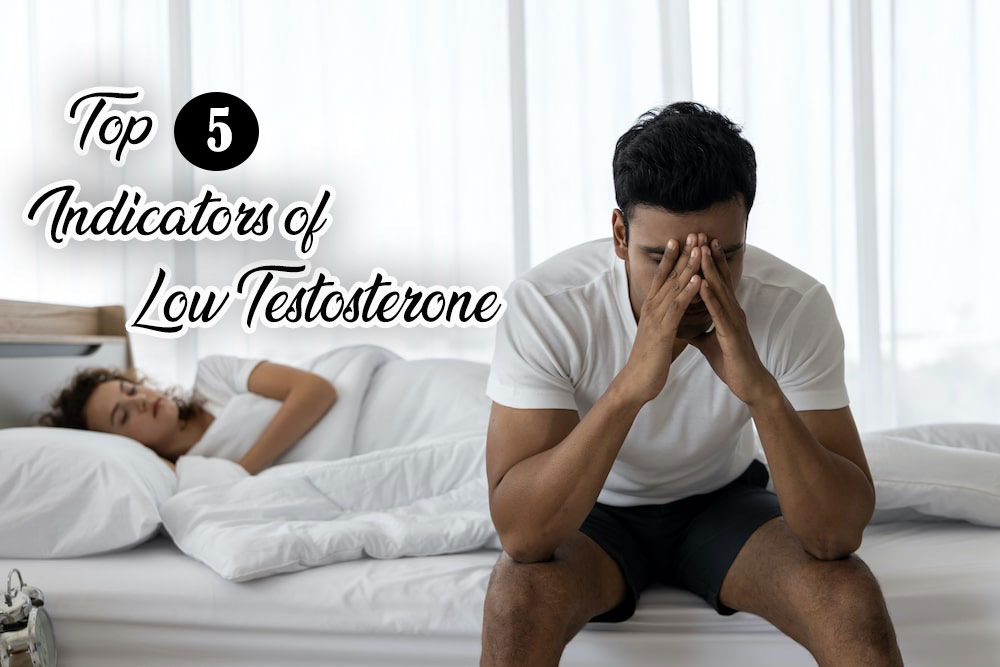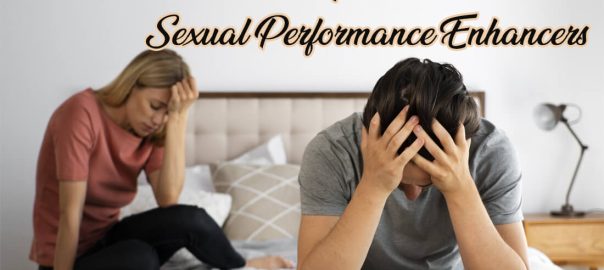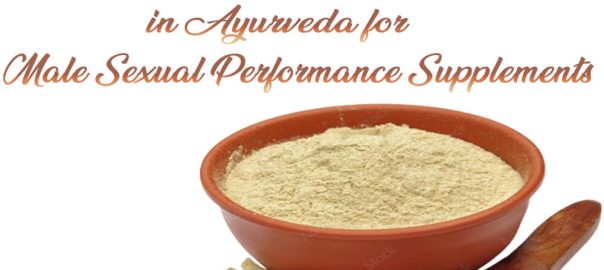
Testosterone is a hormone that is primarily responsible for the development of male physical characteristics. It plays a crucial role in developing muscle mass, bone density, and body hair growth. Testosterone also helps to regulate sexual function, including the development of the testicles and high prostate, as well as sperm production. In addition, testosterone plays a vital role in maintaining a man’s overall health and well-being. However, as men age, their testosterone levels begin to decline. This Natural Erection in testosterone levels can lead to various symptoms and health issues, collectively known as low testosterone or hypogonadism. Lets explore the importance, casues & symptoms of top 5 indicators of low testosterone.
The Importance of Testosterone
Testosterone is crucial for a man’s overall health and Counter Male Enhancement. It significantly develops male physical characteristics, including muscle mass, bone density, and body hair growth. Testosterone is also essential for the maintenance of sexual function and reproductive health.
In addition to Sex Medicine, testosterone is important for a man’s overall health. It plays a role in regulating mood, cognitive function, and energy levels and helps maintain cardiovascular health and the immune system.
Causes of Low Testosterone
Low testosterone can occur for various reasons, including ageing, underlying Natural Erection Supplements, certain medications, and lifestyle factors. As men age, their testosterone levels naturally begin to decline. However, other factors can contribute to low testosterone levels, including obesity, diabetes, and certain medications such as opioids and steroids.
Lifestyle factors can also play a significant role in the development of low testosterone. Poor diet and lack of exercise can contribute to low testosterone levels, as can excessive alcohol consumption and smoking.
Symptoms of Low Testosterone
Low testosterone can lead to various symptoms and health issues. Common symptoms of low testosterone include decreased libido, erectile dysfunction, fatigue, loss of muscle mass, increased body fat, mood changes, and decreased cognitive function.
Low testosterone can also increase the risk of various health conditions, including osteoporosis, cardiovascular disease, and type 2 diabetes.
Treatment for Low Testosterone
Treatment for low testosterone may vary depending on the underlying cause and severity of the condition. Hormone replacement therapy (HRT) is a common treatment option for men with low testosterone, which involves using an immunity booster to raise hormone levels.
Lifestyle changes can also help treat sexual disorders. Eating a healthy diet, exercising regularly, and maintaining a healthy weight can help improve testosterone levels. Quitting smoking and reducing alcohol consumption can also be beneficial.
In addition, counseling and other forms of therapy can help manage mood changes and other emotional symptoms associated with low testosterone.
Testosterone is an essential hormone for a man’s overall health and well-being. Male infertility can lead to various symptoms and health issues, including decreased libido, fatigue, and mood changes. However, treatments are available, including hormone replacement therapy and lifestyle changes.
If you are experiencing low testosterone symptoms, speaking with a healthcare professional is important. Your doctor can conduct tests to determine if low testosterone is the underlying cause and recommend appropriate treatment options. Addressing low testosterone can improve your overall health and well-being, including sexual function, physical health, and emotional well-being.
1) Decreased Libido:
Testosterone is one of the primary hormones responsible for sexual desire. When testosterone levels are low, it can lead to a decrease in libido or sex drive. Men with low testosterone may have a reduced interest in sex or experience difficulty getting or maintaining an erection.
Causes of Low Testosterone and Decreased Libido
Low testosterone, or hypogonadism, can occur for various reasons, including ageing, obesity, certain medications, and underlying medical conditions. It can also result from lifestyle factors such as poor diet and lack of exercise. When testosterone levels are low, it can lead to a decrease in sexual desire or men’s libido booster.
Symptoms of Decreased Libido
Reduced libido is often one of the first indicators of low testosterone. Men with low testosterone may notice decreased sexual thoughts and fantasies and may not feel as driven to pursue sexual activities as they used to. They may also experience difficulty getting or maintaining an erection, which can further impact sexual function and satisfaction.
Impact of Decreased Libido on Quality of Life
Decreased libido can significantly impact a man’s quality of life, and it can lead to feelings of frustration, anxiety, and depression and can strain relationships with partners. Additionally, it can impact self-esteem and confidence, leading to further sexual and emotional difficulties.
Treatment Options for Low Testosterone and Decreased Libido
Treatment options for low testosterone and decreased libido may vary depending on the underlying cause and severity of the condition. Hormone replacement therapy (HRT) is a common treatment option for men with low testosterone, which involves using synthetic testosterone to raise hormone levels. Lifestyle changes, such as diet and exercise, can also help to improve testosterone levels and sexual function.
2) Fatigue and Low Energy Levels:
Testosterone plays a role in maintaining energy levels and stamina. Men with low testosterone may experience chronic fatigue or a lack of energy. They may feel tired even after getting enough sleep or have difficulty completing simple tasks that would not normally require much effort.
Causes of Low Testosterone and Fatigue
Low testosterone, or hypogonadism, can occur for various reasons, including ageing, obesity, certain medications, and underlying medical conditions. It can also result from lifestyle factors such as poor diet and lack of exercise. When testosterone levels are low, it can lead to feelings of fatigue and low energy levels, even when a person has had enough sleep.
Symptoms of Fatigue and Low Energy Levels
Fatigue and low energy levels are common symptoms of low testosterone. Men with erectile dysfunction cure may feel tired and sluggish throughout the day, even after enough sleep. They may also have difficulty completing simple tasks that would not normally require much effort and may experience a lack of motivation and drive.
Impact of Fatigue and Low Energy Levels on Quality of Life
Fatigue and low energy levels can significantly impact a man’s quality of life. It can lead to feelings of frustration, anxiety, and depression and can make it difficult to enjoy everyday activities and hobbies. Additionally, it can impact work performance and social relationships.
Treatment Options for Low Testosterone and Fatigue
Treatment options for low testosterone and fatigue may vary depending on the underlying cause and severity of the condition. Hormone replacement therapy (HRT) is a common treatment option for men with low testosterone, which involves using synthetic testosterone to raise hormone levels. Lifestyle changes like diet and exercise can also help improve testosterone and energy levels.
3) Loss of Muscle Mass:
Testosterone helps to build and maintain muscle mass. Men with low testosterone may experience a decrease in muscle mass and strength. This can make it difficult to perform everyday tasks and lead to a loss of confidence.
Causes of Low Testosterone and Loss of Muscle Mass
Low testosterone, or hypogonadism, can occur for various reasons, including ageing, obesity, certain medications, and underlying medical conditions. It can also result from lifestyle factors such as poor diet and lack of exercise. When testosterone levels are low, it can lead to a loss of muscle mass and strength.
Symptoms of Loss of Muscle Mass
Loss of muscle mass is a common symptom of low testosterone. Men with low testosterone may notice decreased muscle size and strength and may have difficulty performing physical tasks that were once easy for them. They may also experience increased body fat, particularly in the abdominal area.
Impact of Loss of Muscle Mass on Quality of Life
Loss of muscle mass can have a significant impact on a man’s quality of life. It can lead to feelings of weakness and a loss of physical independence, making it difficult to participate in activities and hobbies requiring strength and stamina. Additionally, it can increase the risk of falls and fractures, particularly in older adults.
Treatment Options for Low Testosterone and Loss of Muscle Mass
Treatment options for low testosterone and loss of muscle mass may vary depending on the underlying cause and severity of the condition. Hormone replacement therapy (HRT) is a common treatment option for men with low testosterone, which involves using synthetic testosterone to raise hormone levels. Resistance training and other exercise forms can also help increase muscle mass and strength.
4) Increased Body Fat:
Testosterone helps to regulate fat distribution in the body. Low testosterone levels can cause an increase in body fat, particularly around the midsection. This can increase the risk of health problems such as heart disease, diabetes, and stroke.
Causes of sexual problems in men and Increased Body Fat
Low testosterone, or hypogonadism, can occur for various reasons, including ageing, obesity, certain medications, and underlying medical conditions. It can also result from lifestyle factors such as poor diet and lack of exercise. When testosterone levels are low, the body stores more fat, particularly in the abdominal area.
Symptoms of Increased Body Fat:
Increased body fat, particularly in the abdominal area, is a common symptom of low testosterone. Men with low testosterone may notice decreased muscle mass and increased body fat, particularly in the abdominal area. They may also experience difficulty losing weight, even with diet and exercise.
Impact of Increased Body Fat on Quality of Life:
Increased body fat can significantly impact a man’s quality of life. It can lead to decreased self-esteem and body image and increased risk of various medical conditions such as diabetes, heart disease, and stroke. Additionally, it can make it more difficult to perform physical tasks and participate in activities that require stamina and endurance.
Treatment Options for Low Testosterone and Increased Body Fat:
Treatment options for low testosterone and increased body fat may vary depending on the underlying cause and severity of the condition. Hormone replacement therapy (HRT) is a common treatment option for men with low testosterone, which involves using synthetic testosterone to raise hormone levels. Lifestyle changes, such as diet and exercise, can also help to improve testosterone levels and reduce body fat.
5) Mood Changes:
Testosterone plays a role in regulating mood. Men with low testosterone may experience mood swings, irritability, and depression. They may also have difficulty concentrating and experience a lack of motivation.
Causes of Low Testosterone and Mood Changes:
Low testosterone, or hypogonadism, can occur for various reasons, including ageing, obesity, certain medications, and underlying medical conditions. It can also result from lifestyle factors such as poor diet and lack of exercise. When testosterone levels are low, it can lead to mood changes, including irritability, depression, and anxiety.
Symptoms of Mood Changes:
Mood changes are a common symptom of low testosterone. Men with low testosterone may notice changes in their mood, including irritability, depression, anxiety, and mood swings. They may also experience a decrease in motivation and energy levels.
Impact of Mood Changes on Quality of Life:
Mood changes can significantly impact a man’s quality of life, and they can lead to feelings of sadness, hopelessness, and isolation and can make it difficult to perform everyday tasks. Additionally, mood changes can impact relationships, work performance, and overall well-being.
Treatment Options for Low Testosterone and Mood Changes:
Treatment options for low testosterone and mood changes may vary depending on the underlying cause and severity of the condition. Hormone replacement therapy (HRT) is a common treatment option for men with low testosterone, which involves using synthetic testosterone to raise hormone levels. Counselling and other forms of therapy can also help manage mood changes and improve mental health.
Low testosterone can harm a man’s health and quality of life. It is important to recognize the signs of low testosterone and ed treatment if necessary. If you are experiencing any of the above indicators, speaking with a healthcare professional who can conduct tests and determine the best course of action is recommended. Treatment options may include hormone replacement therapy, lifestyle changes, or medication. Taking action to address low testosterone can improve your overall health and well-being.










